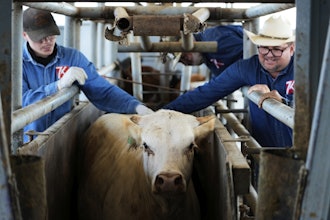
NEW YORK, NY — On Monday, The Changing Markets Foundation, Just Economics, ContraPESO and SumofUs sent letters to eight of Kellogg’s investors, including Aviva, Black Rock, California Public Employees Retirement System (CalPERS), California State Teachers Retirement System (CalSTRS), Nordea, Norges Bank Investment Management (NBIM), Robeco, and Teachers Insurance & Annuity Association (TIAA), calling on them to reconsider their investments in the cereal-giant after a new report found Kellogg’s removal of key micronutrients from popular cereals sold in Mexico will cost the country $250 million over five years through its societal impact.
The investors were chosen for their strong credentials in responsible investment and sustainable finance, with the exception of Black Rock, which takes an integrated approach to sustainable investment and is the largest institutional shareholder in Kellogg’s, holding 7.7 percent shares, valued at nearly $1.5 billion.
In its message to investors, the Changing Markets Foundation and its allies explain that Kellogg’s removal of key nutrients is a short-sighted business plan, which will harm its consumers, impact the Mexican economy, and further damage Kellogg’s future profitability:
"Our investigation exposes the company’s skewed priorities: to save money at the expense of Mexican children and families, who eat its cereals. Furthermore, it reveals Kellogg’s lack of long-term business strategy. The company’s approach may boost its finances in the short term, but, by removing essential nutrients, Kellogg’s is eroding a key reason to buy its cereals in the future and damaging its own reputation. We suggest this short-sighted decision could impact Kellogg’s future returns; not only in terms of revenue but also in terms of returns to shareholders. Moreover, it is a reputational risk for [investors] to be associated with Kellogg’s on this matter."
VIEW EACH LETTER HERE: http://changingmarkets.org/wp-content/uploads/2019/11/Letters_to_investors_Kelloggs.pdf
Although Kellogg’s argues its decision to remove micronutrients is data and science-led, the company has provided no details of the research behind its decision. Micronutrient deficiencies in Mexico remain problematic. For example, One in four children in Mexico suffer from anaemia — providing little justification from a public health or science-based perspective.
Furthermore, the report’s findings show that over five years, Kellogg’s has saved an estimated $85 million by removing micronutrients. Using data derived from a third-party market data source, this is the equivalent of 5.6 percent of Kellogg’s retail sales of breakfast cereals Mexico in the same period.
In reality, with a nearly 30% drop in share price over the past three years, Kellogg’s has been under mounting pressure to put the company back on a path to growth, calling into question the real motives behind its removal of micronutrients from its cereals in Mexico. A tumultuous 2019 has already seen the company sell-off Keebler, Famous Amos, and a number of other brands for $1.3 billion, and just months later, cut 150 salaried positions. This has briefly allowed the stock regain value, but has analysts stating Kellogg’s “remains a declining business.”
“Kellogg’s claims ‘a critical part of running a good business is also doing good for society’ but our findings show they are taking the opposite approach in Mexico,” said Alice Delemare Tanpuori, Senior Campaigns Advisor at Changing Markets Foundation. “It’s time for investors and consumers to see through Kellogg’s short-sighted strategy that prioritises profit at the expense of Mexican children and families, and insist the company gives children a healthier breakfast product.”






















